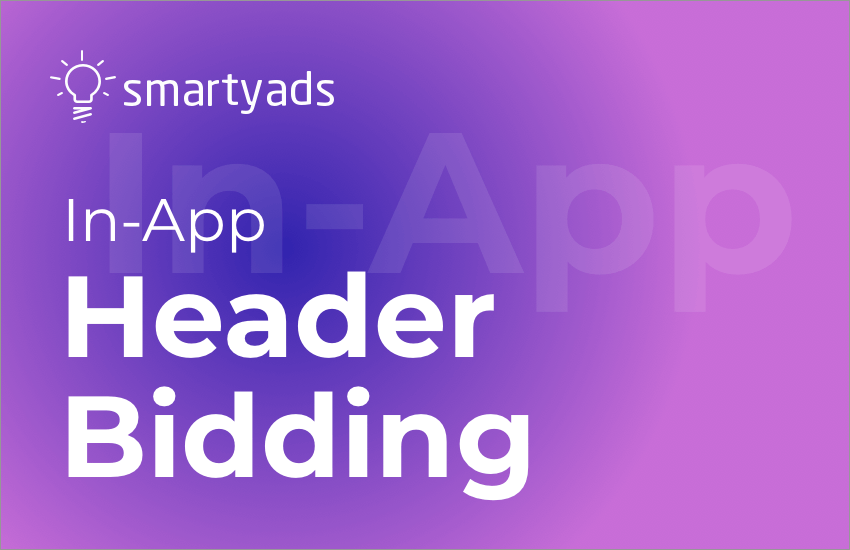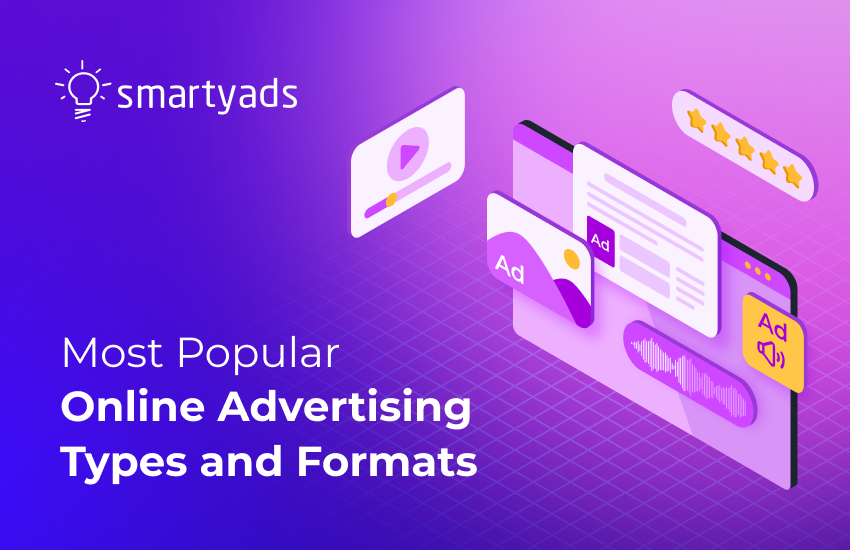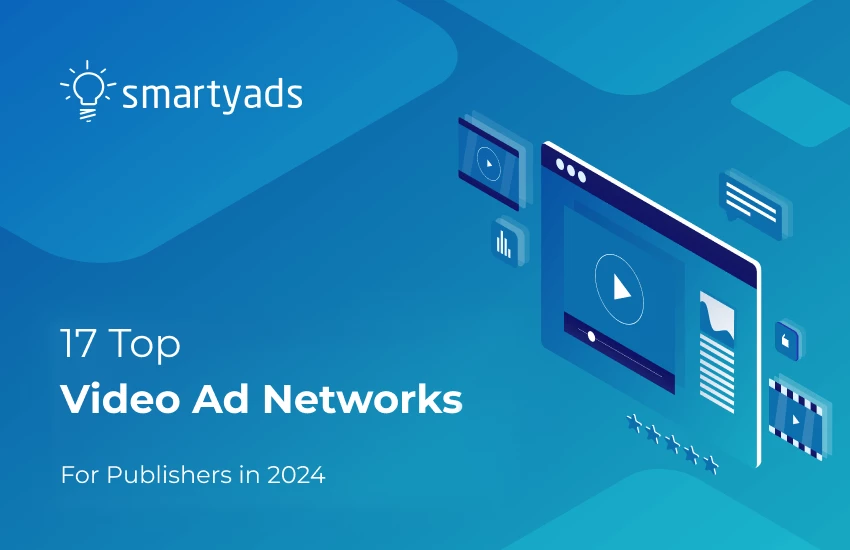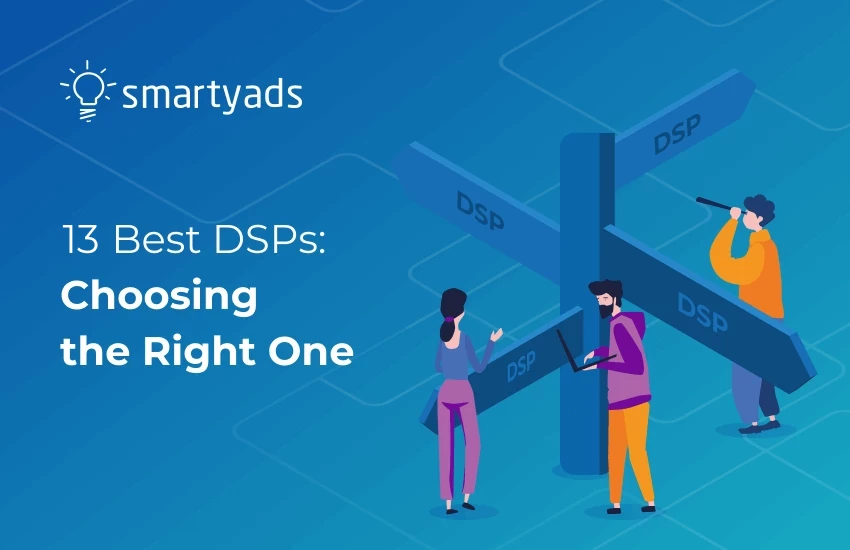Due to the newly appeared mobile header bidding solutions, the landscape of mobile monetization has finally started to thrive. With year-to-year monetized impressions grown by 200% in 2017, mobile bidding ad tech is promised a great future, taken that 8 out of 10 mobile web ads in 2019 will be bought programmatically.
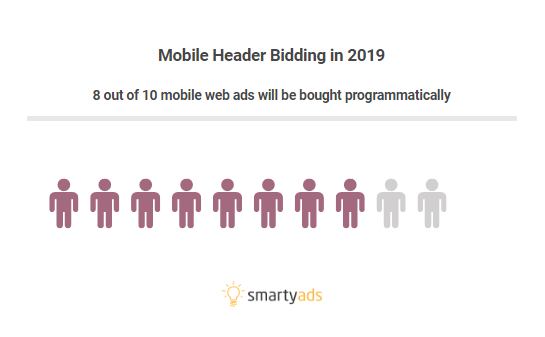
A couple of years before, header bidding on mobile looked rather like a far-fetched dream of a publisher or an app developer who wanted to reap the rewards of advanced bidding technology that had already brought enhanced revenue streams to the desktop unified auction participants.
Before the first mobile app header bidding solutions popped up on the scene, bidding in real-time on the mobile ad market only worked through direct or waterfall schemes, which cost mobile app publishers up to 50% inventory loss and a great deal of remnant inventory.
Header bidding on mobile: what is it and how does it work?
The desktop bidding solution, aka “pre-bidding”, “tagless,” or “advanced bidding,” utilizes a piece of JavaScript that allows demand sources to ping multiple ad exchanges simultaneously in order to get the highest price for an impression instead of making series of “waterfall” queries, one by one.
Read more about what is desktop header bidding?
Offering advertising opportunities to multiple demand partners at the same time, the mobile header bidding code provides equal chances for every participant to take part in the unified auction, including demand-side platforms, ad networks, and ad exchanges.
For the publisher, such mobile bidding or desktop technology is also an opportunity to assess the inventory objectively, based on current demand, and subsequently increase the yield by 25%-30% compared to the waterfall approach.
Header bidding technology provides unprecedented benefits for desktop, mobile publishers, and advertisers alike, as they’re interested in higher quality inventory that otherwise is quickly sold out through the direct deals or the first “rounds” of the waterfall bidding process.
Mobile header bidding: perspectives and solutions
Just in 2 years, header bidding made a giant leap from the state of being unknown to the title of “highest yielding ad tech solutions”, adopted by 70% of publishers worldwide.
Our data illustrate the current state of the header bidding technology adoption on mobile and desktop for May 2018.
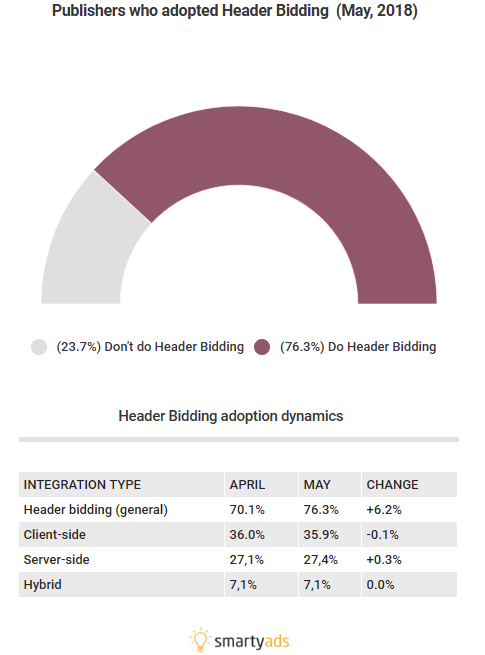
Our quarterly header bidding also index indicates - around 27% of impressions that were monetized in 2017 came from mobile header bidding.
Header bidding mobile monetization strategy is a way out of the problem related to low-income mobile publishers face these days.
Whereas in the desktop environment, the string of header bidding code is integrated directly into the browser, the mobile header bidding is implemented with the help of a software development kit (SDK), client, or server side.
The client-side wrapper code allows connecting for several adapters, while server-side back-end integrations allow pinging several ad exchanges.
Mobile header bidding solutions: real-time, close at hand
To this time, the software development kit remains the most popular mobile web bidding decision, also known as the mediation platform for mobile integration. Over 75% of publishers use 5 different app headers, bidding partners.
Such an approach helps to achieve transparency and unification for every bidder the publisher is connected to. For mobile publishers and developers, such a mobile solution can be regarded not only as a platform but as a long-term partnership where the publisher establishes good relationships, ensuring reduced latency and increasing yield.
However, each additional SDK code string fitted in the mobile will also mean slowing down the speed for user experience; that’s why, for the big publishers, it is easier to transfer app header bidding on the server side.
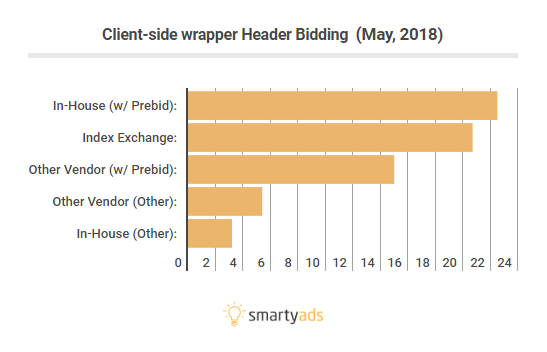
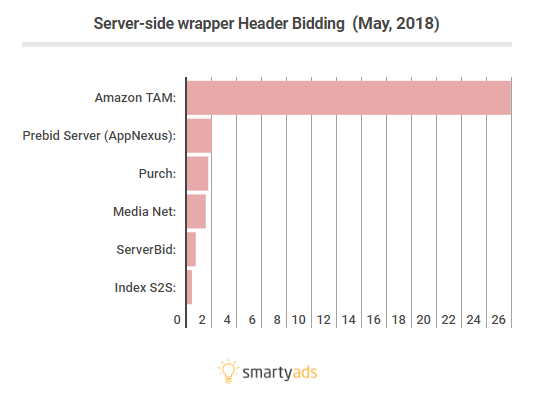
Setting up mobile header bidding codes on devices with SDK, mobile app publishers can quickly monetize the app and increase the yield, dealing with more demand partners and obtaining the bids coming from leading demand sources.
It is worth mentioning that SmartyAds has its own header bidding wrapper solution for desktop, that helps advertisers connect with new partners and access analytics. By implementing Smartyads header bidding, the publishers get the full picture of bid dynamics, latency speed, and the real value of their inventory.
In-app header bidding provides a publisher with a number of obvious advantages, including:
- Transparency by default - As algorithms are clear and explained and auctions fully audited, the publishers can see each bid for an impression coming from the demand source and control them.
- Waterfall flattening - Bidding in real time, every partner provides their own evaluation upfront, so there’s no need to manage the process in which partners gain access to the inventory.
- Better yield - Header bidding for mobile calls all participants of the auction so the publishers can earn more, save fees on passbacks, and earn more by choosing the highest suggested rate.
Looking far into the future
Header bidding mobile solutions are beneficial to everyone. As they grow and evolve, they also learn how to maximize the yield of mobile publishers. In-app header bidding solutions gradually grow and evolve with a great perspective to become a unifying decision for demand platforms consolidation available for the in-app ecosystem.
Furthermore, in the near future, in-app header bidding that combines the benefits of the server-side and client-side technologies will help publishers consolidate the demand partners, making the unified header bidding auction even more profitable and tech-sustainable.
